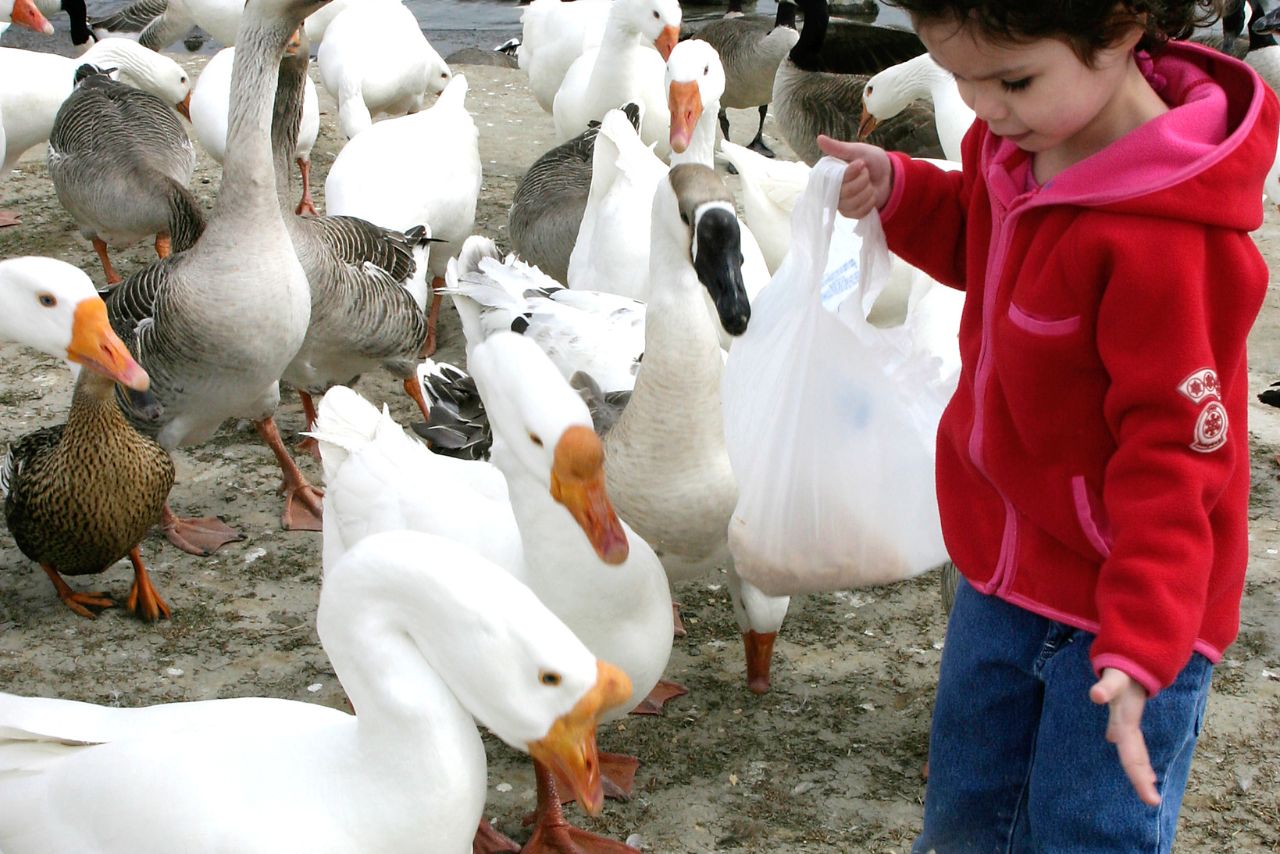Ducks are fascinating creatures that can be found in many parts of the world, from ponds and lakes to farms and parks. While they may seem harmless, many people wonder if duck bites can hurt.
Whether you are a curious observer, a pet owner, or someone who encounters ducks in their daily life, it is important to know the answer to this question, Do Duck Bites Hurt?
So, Yes, duck bites can hurt. Even though ducks don’t have teeth, their beaks are sharp and can easily break the skin. Duck bites can range from a mild pinch to a more serious bite that can cause bruising or bleeding.
Ducks are generally not aggressive towards humans, they may bite if they feel that their nest or young are being threatened.
In this article, we will explore the topic of duck bites and provide useful information to help you stay safe and informed around these feathered friends.
Do Duck Bites Hurt?
Yes, duck bites can hurt. Ducks have strong beaks and can inflict painful bites if they feel agitated or provoked.
Here are some of the reasons why ducks bite:
- To protect themselves: Ducks will bite if they feel threatened or scared. This is especially common in male ducks, or drakes, who are more aggressive than female ducks.
- To defend their territory: Ducks will also bite if they feel like their territory is being invaded. This could be their nest, their food, or even just their favorite spot to swim.
- To mate: During mating season, ducks will bite each other as a way of showing dominance. This is usually not a serious bite, but it can still be painful.
If you are bitten by a duck, there are a few things you should do:
- Clean the wound: Wash the wound with soap and water to prevent infection.
- Apply a cold compress: This will help to reduce swelling and pain.
- Seek medical attention: If the bite is serious, you should seek medical attention.
Here are some tips to avoid being bitten by a duck:
- Do not approach a duck that is acting aggressively. If a duck is hissing, flapping its wings, or making other aggressive noises, it is best to stay away.
- Do not try to feed a duck by hand. This can make the duck feel threatened and more likely to bite.
- Be careful when handling ducks, especially young ducks. Young ducks are more likely to bite than adult ducks.
By following these tips, you can help to avoid being bitten by a duck.
Anatomy Of A Duck’s Bill
Understanding the anatomy of a duck’s bill can also help you avoid getting bitten. A duck’s bill is lined with sensitive nerve endings, which means that they can detect even the slightest movements and vibrations in the water.
This helps them locate food and potential predators. If you are feeding ducks, make sure to hold the food out flat on your palm instead of between your fingers to avoid accidental nips or bites from their bills.
Can Ducks Bite?
yes, ducks can bite when are in aggression. Understanding the risks and taking necessary precautions can make your interactions with ducks enjoyable and safe. `
Do Really Duck Bites Hurt When They Bite?

Duck bites can hurt and it is essential to understand their behavior to avoid getting bitten. It is important to respect their personal space and avoid provoking them, especially during breeding season when they can be more aggressive.
If you do get bitten by a duck, seek medical attention if the wound is deep or shows signs of infection.
Reasons Why Ducks Bite
There are certain reasons due to which ducks bite:
1. Protection: Ducks are territorial animals and will bite to protect their space, especially during breeding season.
2. Fear or Aggression: Ducks may bite if they feel threatened or if they perceive you as a predator.
3. Hunger: Ducks may bite if they mistake your fingers for food, particularly if you have been feeding them regularly.
4. Mating Behavior: During mating season, male ducks may bite females on the back of the neck as part of their courtship behavior.
5. Lack of Socialization: Ducks that have not been properly socialized with humans may view them as a threat and may bite as a result.
What To Do If A Duck Bites You?
By following these tips, you can stay safe and avoid getting bitten by a duck.
- Wash the wound with soap and water.
- Apply an antiseptic cream or ointment to prevent infection.
- Cover the wound with a sterile bandage.
- If the bite is deep or bleeding heavily, seek medical attention immediately.
- Watch for signs of infection, such as redness, swelling, or pus.
- If the duck was a pet or wild animal, report the incident to the local animal control agency.
- Avoid feeding or approaching ducks in the future to prevent future bites.
Can You Get Sick If A Duck Bites You?
While duck bites can be painful, the risk of getting sick from a duck bite is relatively low. However, it is still important to take necessary precautions by cleaning the wound thoroughly and watching for signs of infection.
Ducks can carry bacteria such as E.coli and Salmonella in their saliva, so it’s essential to seek medical attention if you develop any symptoms such as fever, nausea, or vomiting after a duck bite.
Is A Duck Bite Dangerous For Human?

Duck bites can be painful, they are not usually dangerous. If the wound is deep or shows signs of infection, it is essential to seek medical attention immediately.
Ducks can carry bacteria such as E.coli and Salmonella in their saliva, which can cause serious health problems if left untreated. In rare cases, duck bites can also transmit diseases such as avian influenza or avian tuberculosis to humans.
Can A Duck Bite Make You Bleed?
Yes, a duck bite can make you bleed, especially if the wound is deep. Ducks have sharp bills that can pierce the skin and cause bleeding.
It’s important to clean the wound thoroughly with soap and water and apply pressure to stop the bleeding. If the bite is severe or does not stop bleeding, seek medical attention immediately.
Do Ducks Give Love Bites?
Despite their reputation for being cute and friendly, ducks are not capable of giving love bites. While they may bite as part of their natural behavior, ducks do not have the emotional capacity to express affection or love towards humans.
It’s important to remember that while interacting with ducks can be a fun and rewarding experience, it’s essential to treat them with respect and caution at all times.
How To Tell If A Duck Is About To Bite:
1. Watch for body language: If a duck is lowering its head, moving its bill forward, or hissing, it’s a sign that it may be about to bite.
2. Observe the wings: If a duck is holding its wings slightly away from its body, it may be preparing to attack.
3. Listen for sounds: Ducks make warning sounds before they bite, such as hissing or quacking loudly.
4. Back away slowly: If you sense that a duck is about to bite, slowly back away to give it space.
5. Don’t provoke the duck: Avoid making sudden movements, loud noises, or getting too close to a duck’s nest or young, as this can provoke an attack.
Do Ducks Have Teeth To Bite?
No, ducks do not have teeth to bite. Instead, they have sharp bills that they use for feeding, grooming, and defending themselves from predators or perceived threats.
The shape and size of a duck’s bill vary depending on its species and diet. For example, diving ducks have narrow bills that allow them to catch fish underwater, dabbling ducks have broader bills with they feed on plants and invertebrates.
How To Make A Duck Stop Biting You?
If a duck is biting you, it’s essential to take steps to discourage this behavior and prevent further bites. Here are some tips on how to make a duck stop biting you:
1. Use a distraction:
Offer the duck a distraction such as food or a toy to divert its attention away from biting you.
3. Use a deterrent:
If the duck continues to bite, use a gentle deterrent such as a spray of water or a noise to discourage the behavior.
4. Respect personal space:
Avoid getting too close to the duck or touching it, as this can trigger a defensive response.
5. Seek professional help:
If the duck’s biting behavior persists or becomes aggressive, seek the advice of a professional animal behaviorist or veterinarian.
Tame Your Ducks:
Taming your ducks is an essential process for their safety and well-being. Ducks can be flighty and easily scared, so teaching them to trust and follow you will make them easier to handle.
Begin by spending regular time with your ducks, offering them food and water each day. Slowly introduce your hand to them, offering food from your palm so they begin to associate your hand with something positive.
Once they are comfortable with your presence, you can start to gently touch them and move them around.
Conclusion! Do Duck Bites Hurt?
Ducks do not have teeth to bite, they can still use their sharp bills as a defense mechanism. By understanding their behavior and body language, you can avoid being bitten by a duck.
If you do get bitten, it’s essential to take steps to discourage this behavior and prevent further bites.
Remember that taming your ducks is an important process for their safety and well-being, and it also allows you to create a stronger bond with them.
With patience and understanding, you can safely interact with these beautiful creatures while appreciating the beauty of nature’s wildlife.
FAQs
Do Duck Bites Hurt?
Duck bites can be painful, but they are usually not severe unless the duck is particularly aggressive or the bite occurs in a sensitive area.
Why Do Ducks Bite in General?
Ducks may bite as a defensive response if they feel threatened or provoked. They may also nibble or peck as part of their natural feeding behavior.
Can You Get Sick from A Duck Bite?
There is a risk of infection from any animal bite, including a duck bite. It’s important to clean the wound thoroughly and seek medical attention if necessary.
How Can I Avoid Getting Bitten by A Duck?
Avoid approaching or provoking ducks and respect their personal space. Back away slowly if you sense that a duck is about to bite and try to distract it with food or toys to divert its attention.
Are There Any Long-Term Effects of Getting Bitten by A Duck?
In most cases, there are no long-term effects of getting bitten by a duck. However, it’s important to seek medical attention if the wound becomes infected or shows signs of complications such as swelling or redness.




